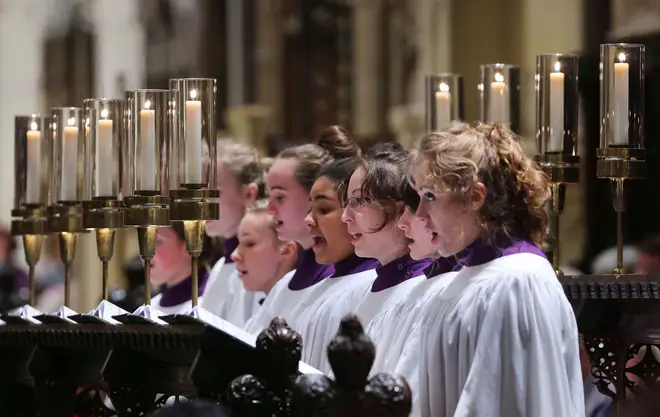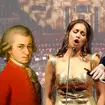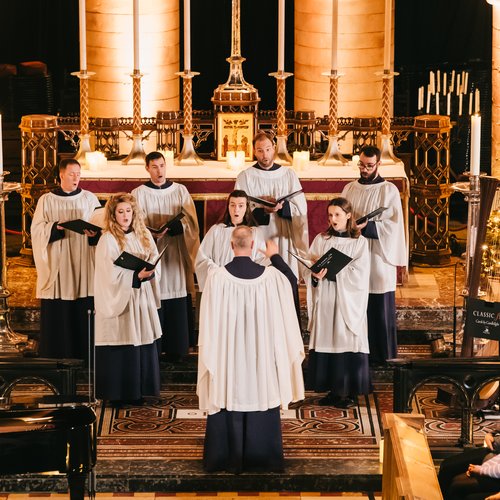What are the lyrics to ‘I Vow to Thee, My Country’ and who wrote the hymn?
16 September 2022, 16:39 | Updated: 18 September 2023, 16:34

You might recognise the patriotic British hymn ‘I Vow to Thee My Country’ from Remembrance services and various high-profile, national occasions – but who wrote it, and what are the lyrics?
Written in 1918, ‘I Vow to Thee, My Country’ remains one of the most popular British hymns to this day.
It was first sung at St Paul’s Girls’ School in Hammersmith, London, where Holst taught, and later became their official school hymn.
Now, it is most strongly associated with Remembrance Day, being performed at services across the UK and the rest of the Commonwealth. It has been used at various state and other high-profile funerals, including those of former prime ministers Winston Churchill and Margaret Thatcher, and more recently that of Captain Sir Tom Moore, in February 2021.
The hymn was also a personal favourite of Diana, Princess of Wales. She requested that it be sung at her 1981 wedding to the Prince of Wales, and in 1997 it was played at her funeral, as well as at a 10-year memorial service in 2007.
Read more: What are the lyrics to Britain’s national anthem and who composed it?

Katherine Jenkins "I Vow To Thee My Country"
Who wrote ‘I Vow to Thee, My Country’?
The hymn is a combined lyrical and musical effort by two British greats, with the diplomat and former Ambassador to the United States Sir Cecil Spring Rice providing the words, and Gustav Holst the music.
Spring Rice originally wrote the words between 1908 and 1912, as a poem called Urbs Dei (The City of God) or The Two Fatherlands. Following the events of the First World War, during which the diplomat’s brother had died, Spring Rice revisited his poem in 1918 and made several changes, including cutting an entire verse that contained overt war references and imagery.
This revised version is the one we know today as ‘I Vow to Thee, My Country’, telling the tale of two domains – a patriotic Britain that stands united in devotion, and a heaven that seeks peace above all else.
Read more: What are the lyrics to the hymn ‘Jerusalem’, and is it England’s national anthem?

Gloriana Choir performs Imogen Holst's O Years and Age
Does ‘I Vow to Thee, My Country’ share a tune with ‘Jupiter’?
Bat-eared listeners may have noticed that the tune for ‘I Vow to Thee, My Country’ is somewhat familiar, taken from the middle section to Holst’s own ‘Jupiter’, the fourth movement of his suite The Planets, written just a few years earlier.
In the years following Spring Rice’s revisions, the poem was sent to Holst and the composer was asked to set the words to music. According to the composer’s daughter, Imogen, Holst was exhausted and over-worked when the words landed on his desk, and “he felt relieved to discover they ‘fitted’ the tune from Jupiter”.
Extending the melody to account for the final two lines of each verse, Holst reworked the tune as a unison song with orchestra in 1921. Then, in 1926 he added a harmony to make it a hymn and nicknamed the tune ‘Thaxted’, after the Essex village he called home.
His friend and fellow composer, Ralph Vaughan Williams, was the editor of Songs of Praise at the time, and published it in that year’s edition.

Melodica Men - Jupiter (Holst)
What are the lyrics to ‘I Vow to Thee, My Country’?
I vow to thee, my country, all earthly things above,
Entire and whole and perfect, the service of my love;
The love that asks no questions, the love that stands the test,
That lays upon the altar the dearest and the best;
The love that never falters, the love that pays the price,
The love that makes undaunted the final sacrifice.
And there's another country, I've heard of long ago,
Most dear to them that love her, most great to them that know;
We may not count her armies, we may not see her King;
Her fortress is a faithful heart, her pride is suffering;
And soul by soul and silently her shining bounds increase,
And her ways are ways of gentleness, and all her paths are peace.












